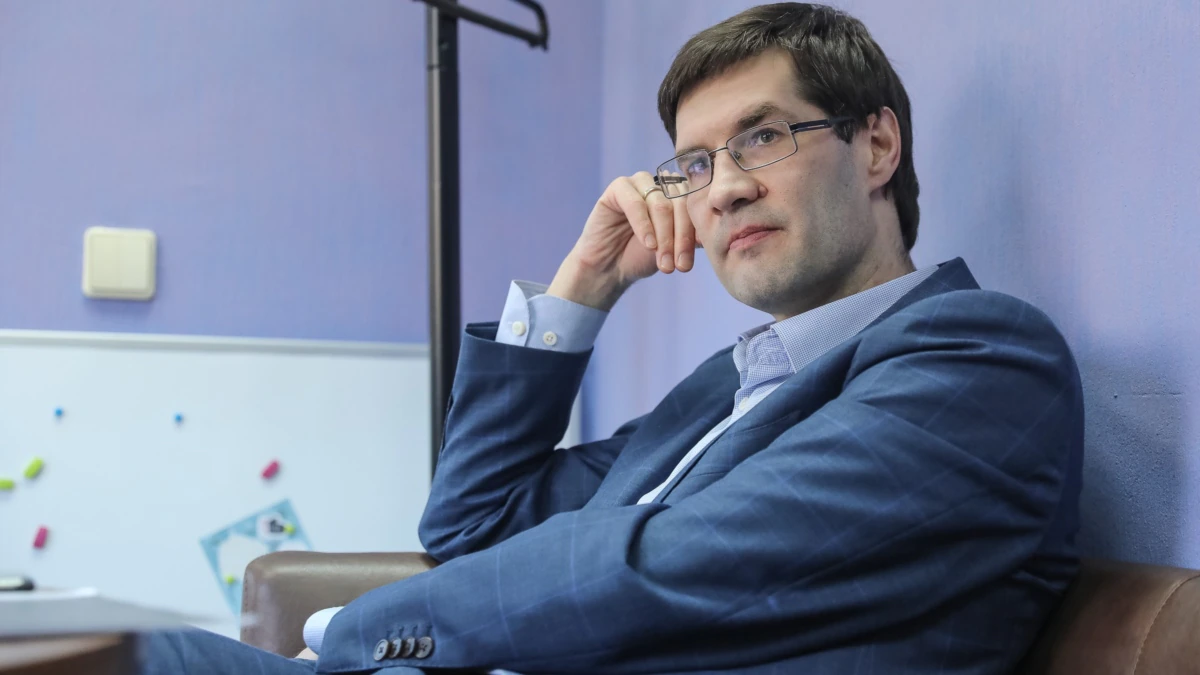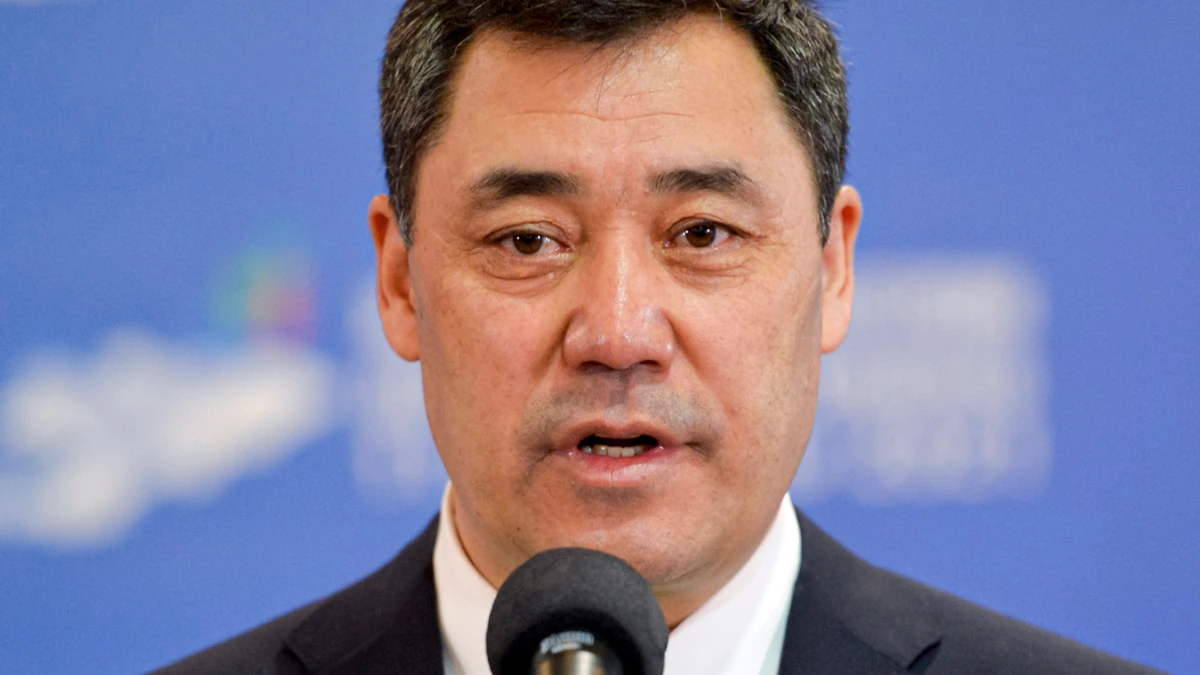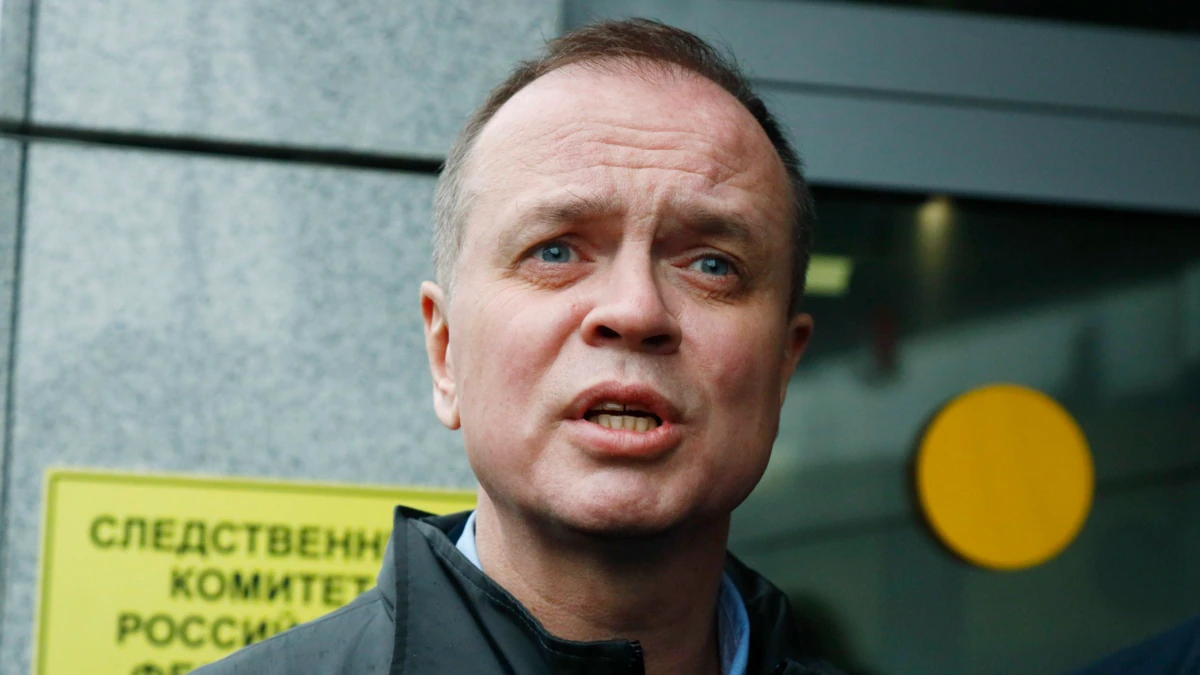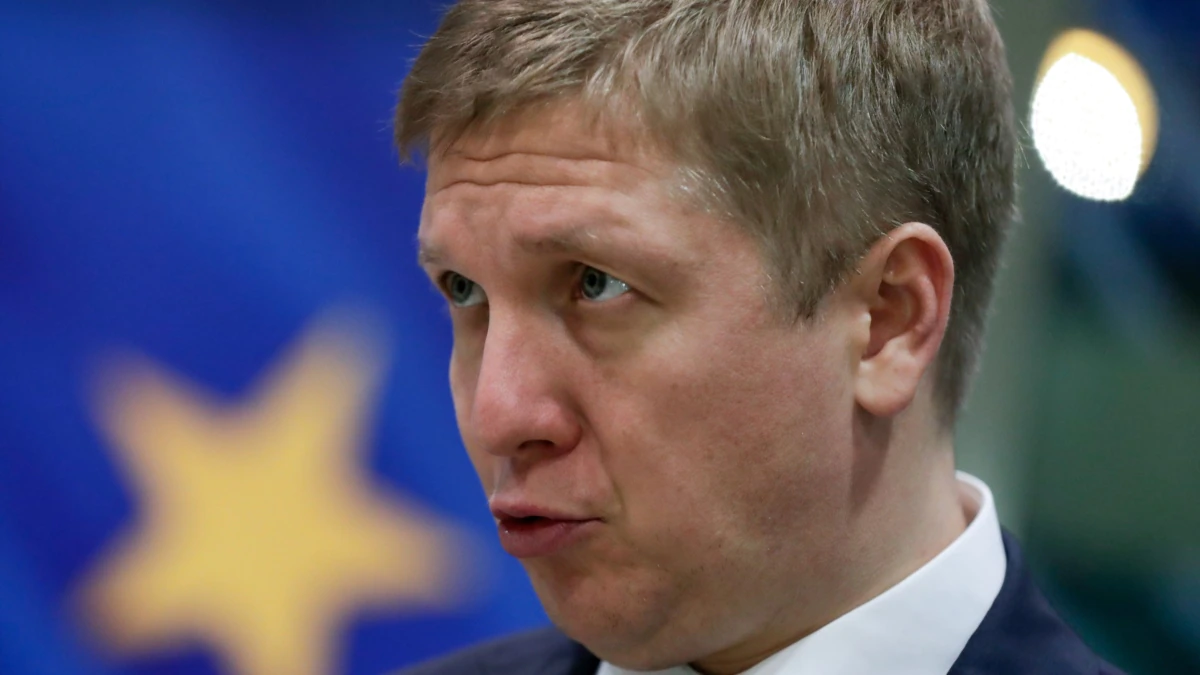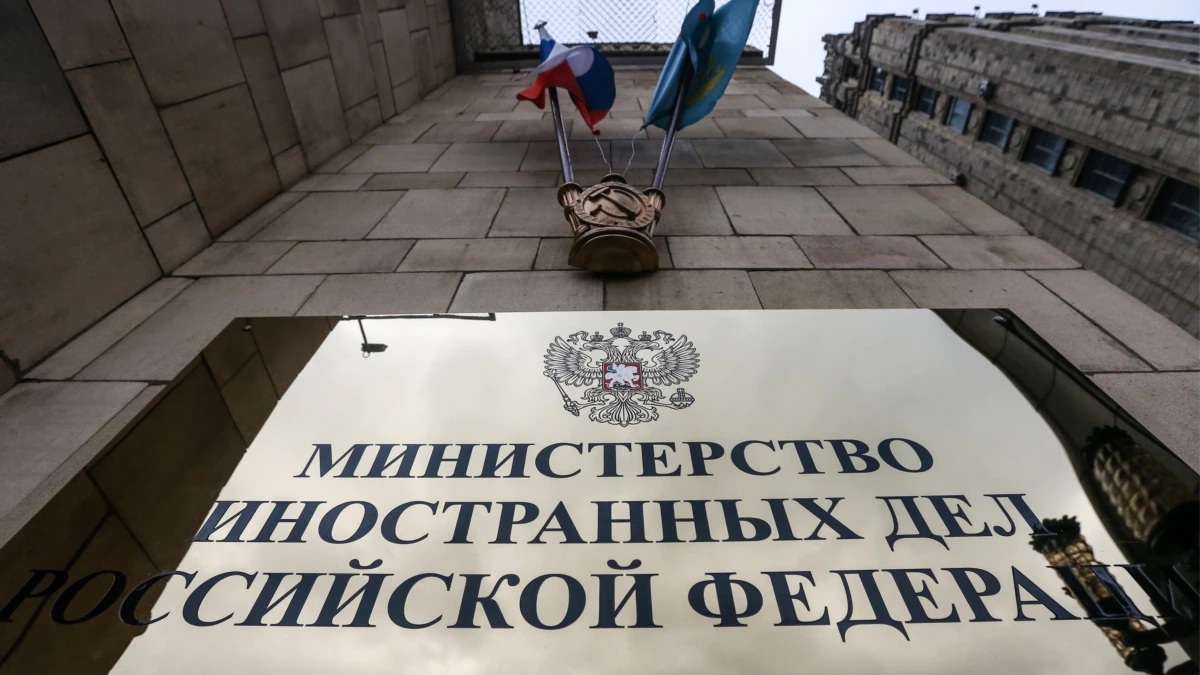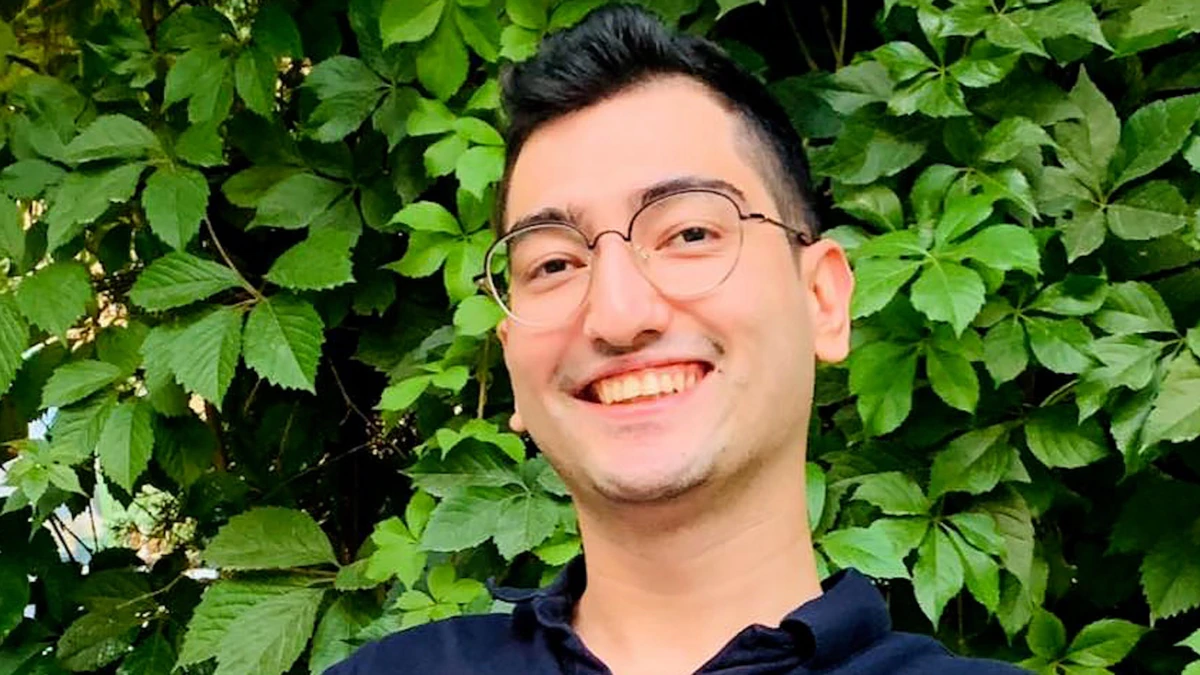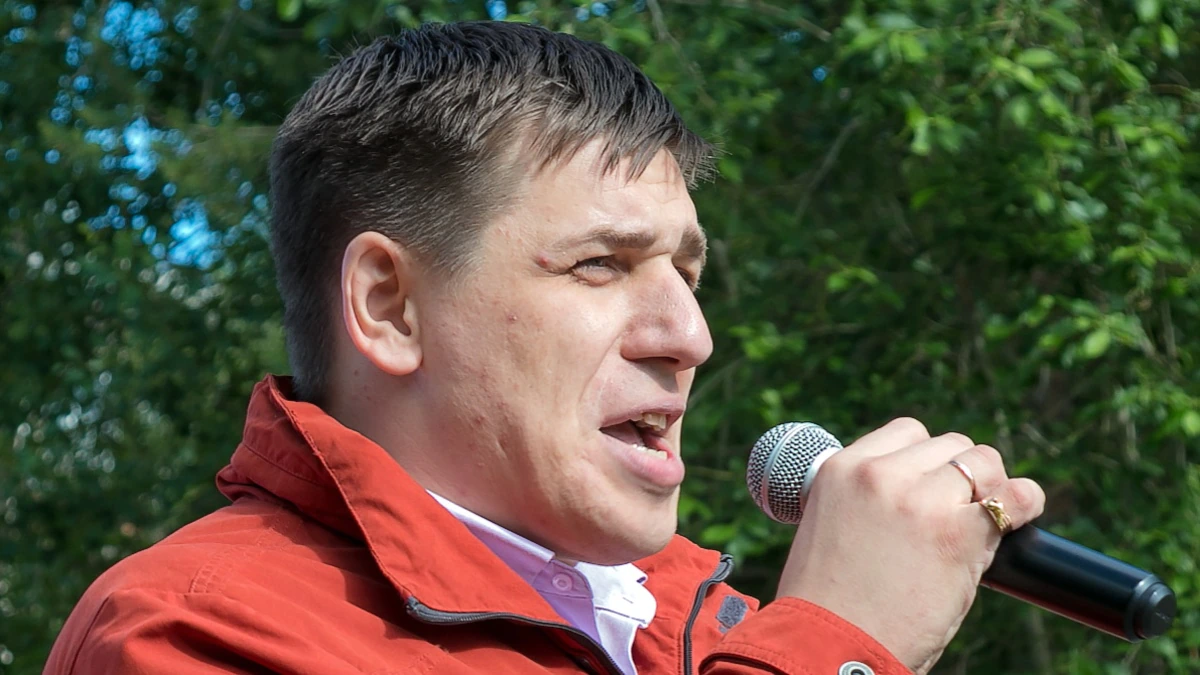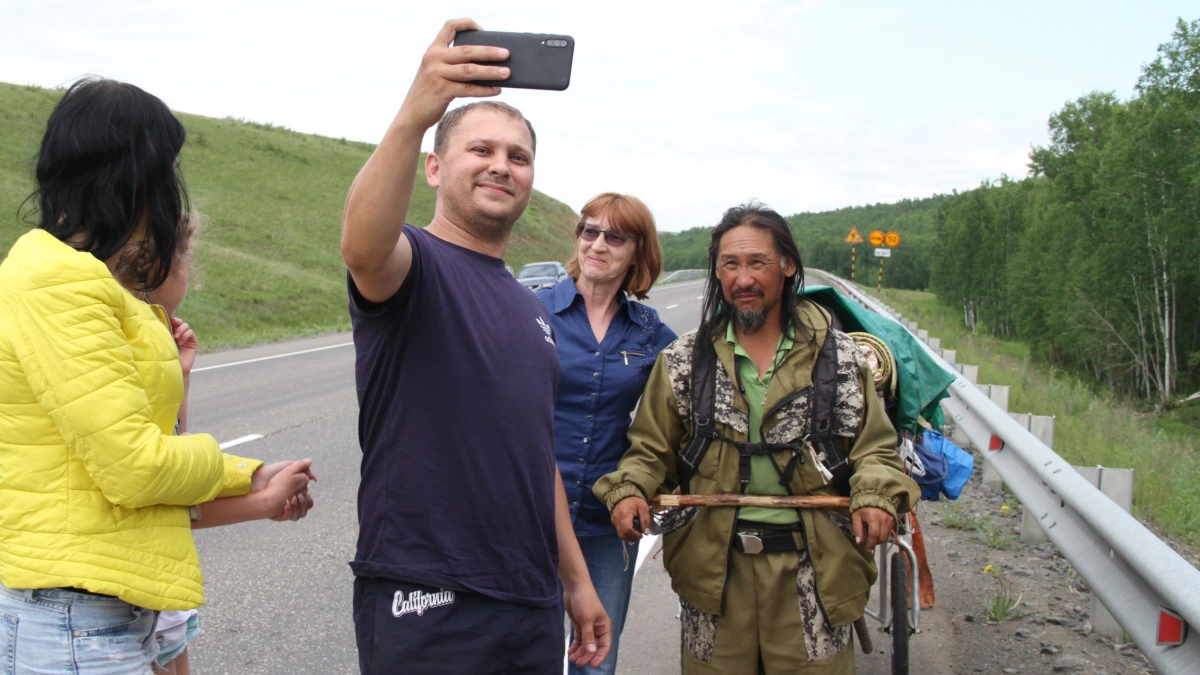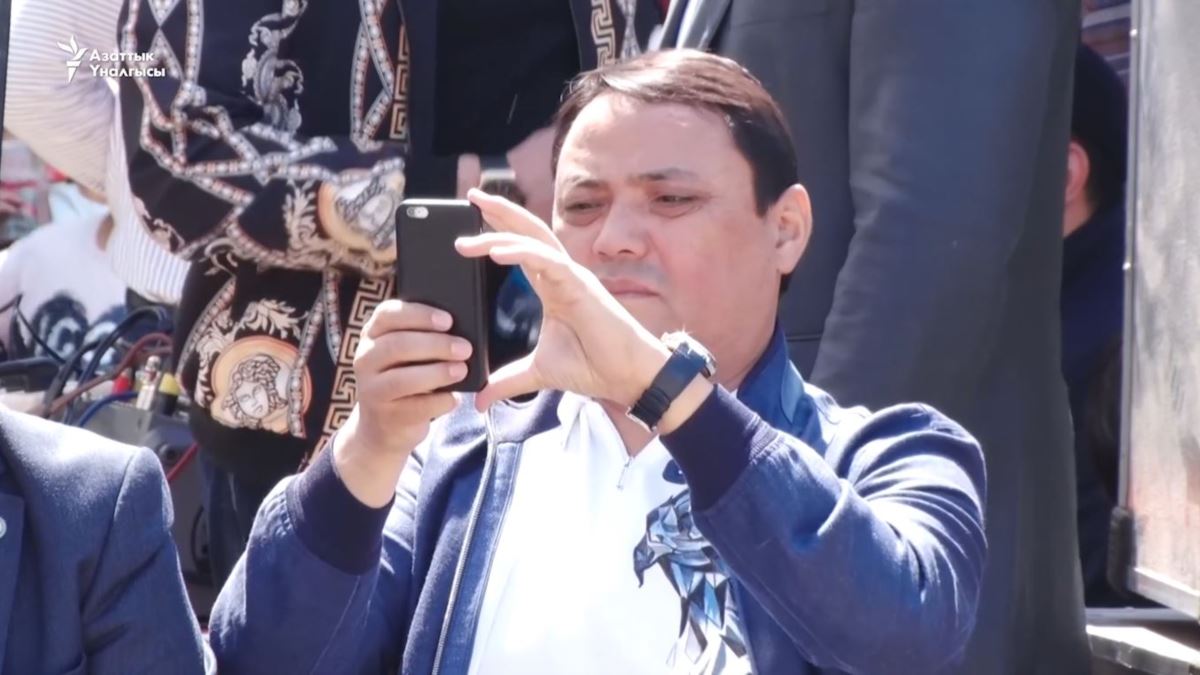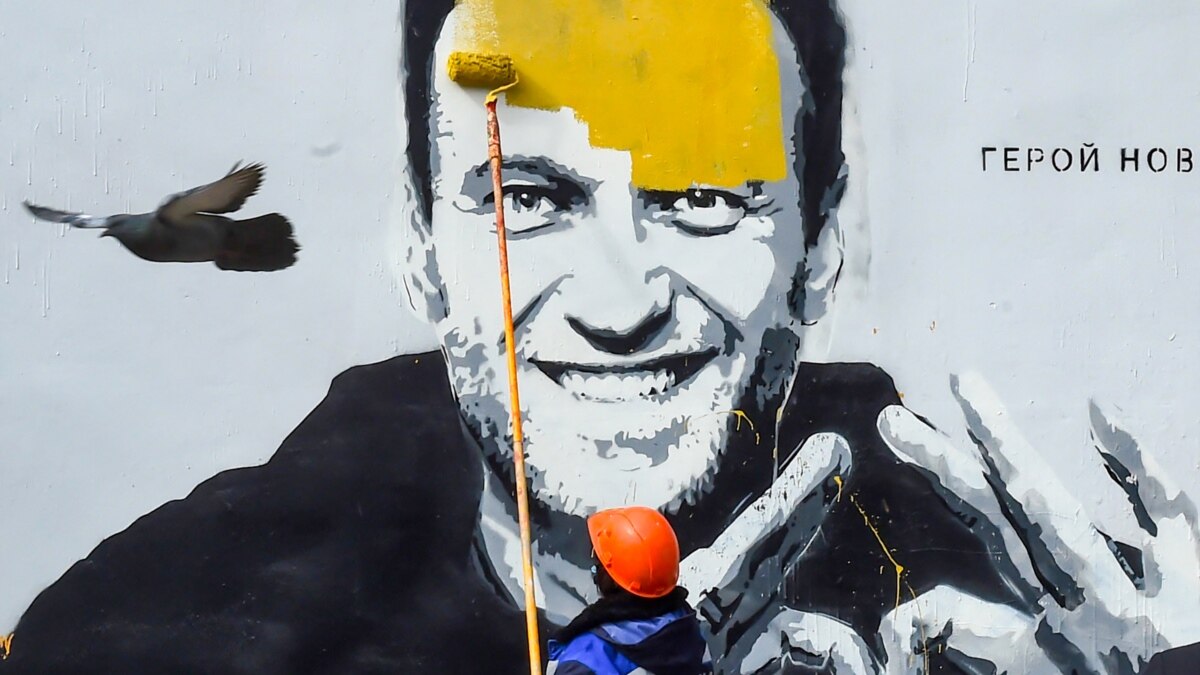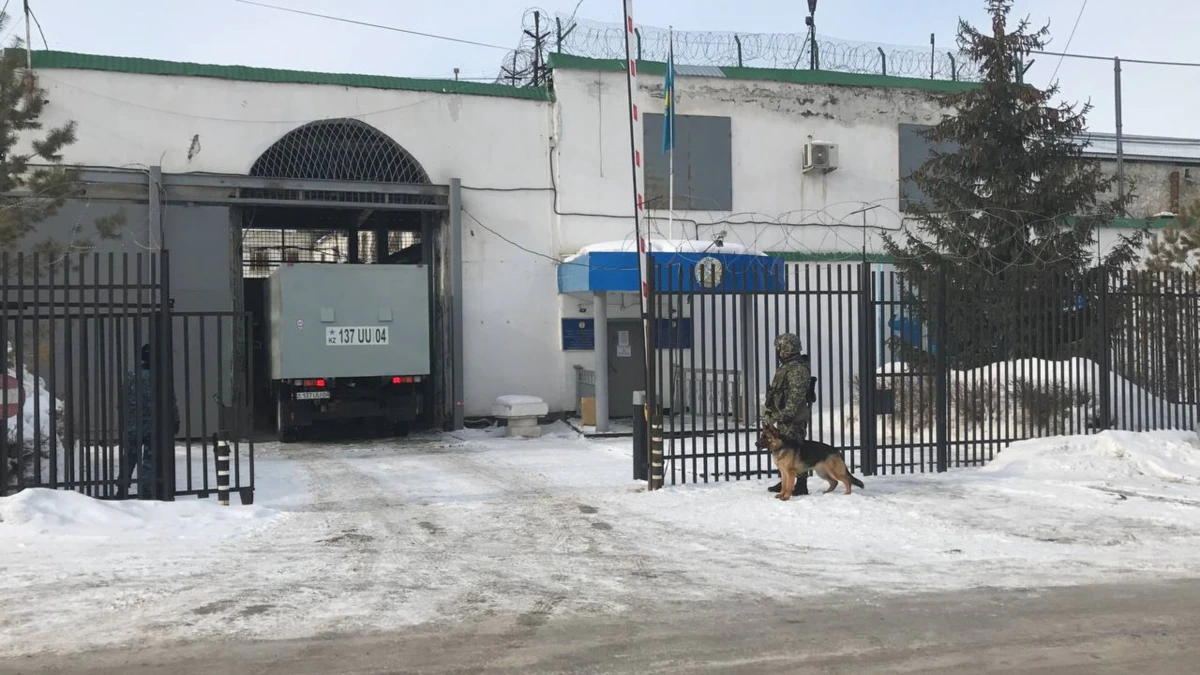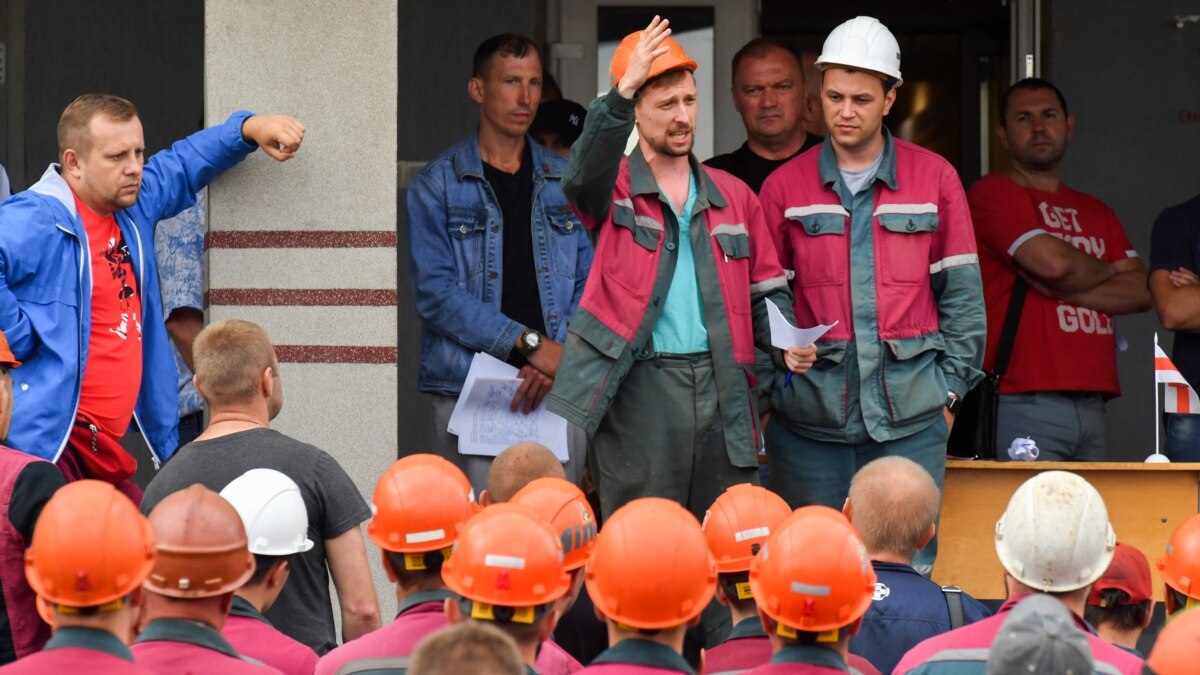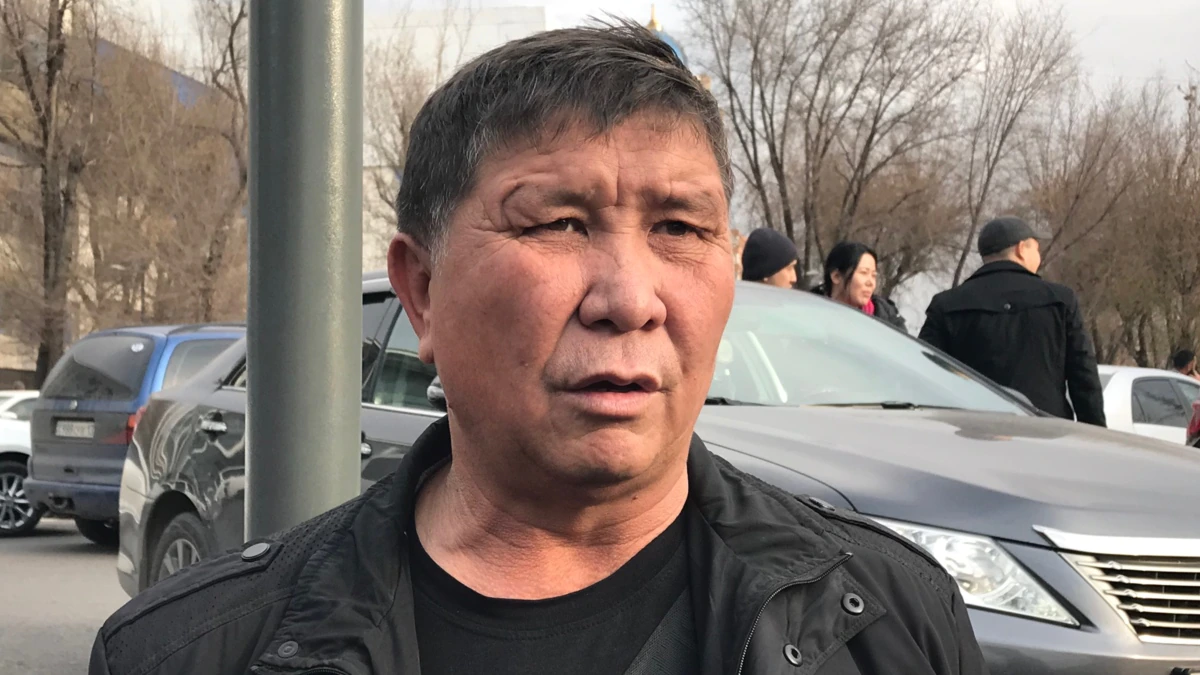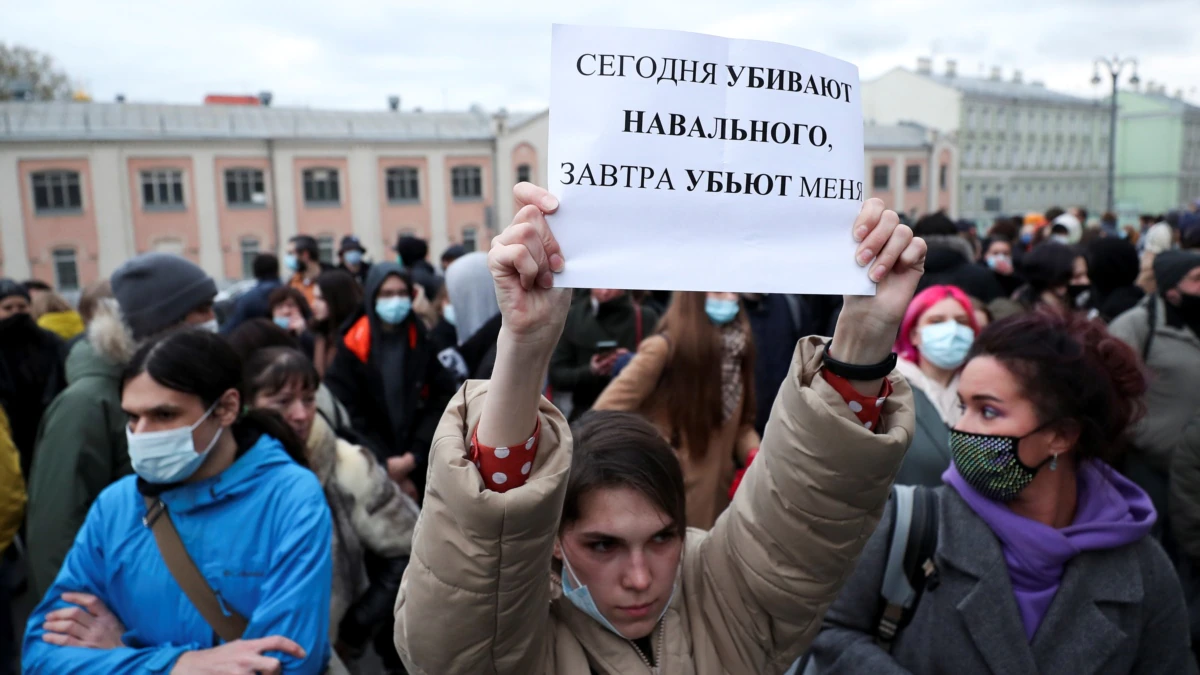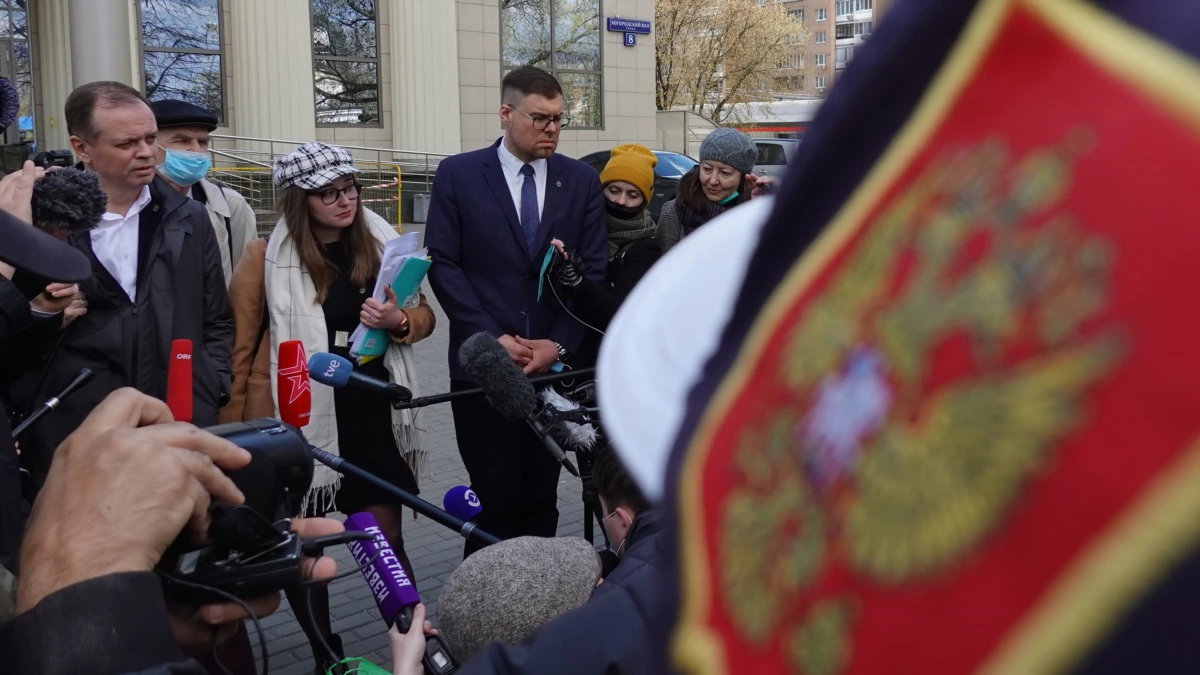When U.S. Secretary of State Antony Blinken visits Kyiv this week and meets with President Volodymyr Zelenskiy, he will seek to demonstrate strong Western support for Ukraine from the external threat of Russian aggression.
Behind the scenes, however, there could be tension between the two over what Blinken often calls Ukraine’s “internal threat”: corruption and weak institutions.
One week before Blinken’s expected arrival on May 5, Zelenskiy’s government did exactly the kind of thing that has raised questions in the West about Kyiv’s dedication to reforms, which observers and officials say are needed to make the system strong enough to withstand persistent pressure from Moscow.
The government dismissed Andriy Kobolyev, the respected chief executive officer of Naftogaz, the state-owned energy company that has been at the center of some of Ukraine’s biggest corruption scandals over the past three decades, using a legal loophole to get around Western corporate governance practices it had promised to uphold.
Analysts said the stealth move, coming amid an outpouring of Western support for Ukraine in the wake of a big Russian military buildup on its borders and in occupied Crimea, smacked of direct government interference in the management of a state-owned company, a practice that has had dreadful consequences for the Ukrainian economy in the past and which the West is trying to wean Kyiv off.
Kobolyev’s dismissal provoked pointed criticism from the European Union and the United States, which have tied financial aid to Ukraine to improvements in corporate governance at state-owned companies and overall anti-corruption efforts.
I believe that Zelenskiy has a fear that all these [managers] were affiliated with the previous team of Poroshenko.”
Philip Reeker, acting U.S. assistant secretary for European and Eurasian Affairs, called the move “troubling” during a phone briefing with reporters on April 30 and said the United States will push Ukraine’s leaders to “respect transparent corporate governance practices.”
The move has potentially jeopardized not only billions of dollars in aid from the International Monetary Fund, but also much needed private investment in the nation’s energy sector.
The Naftogaz CEO’s ouster was just the latest in a series of actions by the Zelenskiy administration that have raised concerns about a rollback of the reforms achieved since Moscow-friendly President Viktor Yanukovych was pushed from power in 2014 by the massive Maidan protests, which were prompted largely by anger over corruption.
Blinken’s response to the situation surrounding Naftogaz will send an important signal to Zelenskiy about just how far President Joe Biden’s administration is willing to go to protect the nation’s reform path, analysts said.
‘Unsatisfactory’ Results
Ukraine’s Cabinet of Ministers on April 28 dismissed Naftogaz’s supervisory board, opening a legal door for the removal of Kobolyev, who has been widely credited with turning around the historically graft-infested company during his seven-year reign.
The cabinet named Yuriy Vitrenko, the acting energy minister, to replace Kobolyev and then reinstated the board.
The government’s decision violated the corporate governance principles of the Organization for Economic Cooperation and Development (OECD), which stipulates that supervisory boards of state-owned companies have the power to hire and fire management.
Ukraine has never implemented OCED rules for state-owned companies, and Zelenskiy’s government just proposed a new law that would keep such powers with the cabinet, setting up the possibility of a similar development at another company, said Andriy Boytsun, a Ukrainian corporate governance and privatization adviser.
In a terse statement, the cabinet cited the “unsatisfactory” 2020 financial performance of Naftogaz, which posted its first annual loss in five years.
Pointing to the effects of the COVID-19 pandemic on economies worldwide, many quickly dismissed the government’s reasoning as an excuse to get rid of an independent manager who has consistently pushed Ukraine to carry out sometimes unpopular energy-market reforms.
Ukrainian officials have been seeking to oust Kobolyev for years under various pretexts, going back to the early days of post-Maidan President Petro Poroshenko’s administration. Critics say these efforts have been motivated by the desire for direct control over the nation’s largest company by revenue and its largest taxpayer.
“It’s not about the concrete performance of [Naftogaz] management, it’s a decision against corporate governance reform,” former Prime Minister Oleksiy Honcharuk told RFE/RL about Kobolyev’s dismissal.
“For Zelenskiy and his team, it is very important to have total control” in order to carry out populist, nonmarket policies like price ceilings, he asserted.
Honcharuk, who was fired by Zelenskiy in March 2020 after six months on the job, is one of several former top officials who have been outspoken in their criticism of the administration’s policies.
Andrian Prokip, a Kyiv-based energy expert and senior associate at the Kennan Institute think tank, noted that Zelenskiy’s administration has changed the leadership of nearly all the key state-owned energy companies since he took office in May 2019.
“I believe that Zelenskiy has a fear that all these [managers] were affiliated with the previous team of Poroshenko,” Prokip said.
Energy prices have historically been a very sensitive political topic in Ukraine and can make or break a candidate.
Poroshenko’s rating took a hit after his administration was forced to take steps to liberalize energy markets as a condition for Western financial aid, causing prices to spike.
During the 2019 presidential election campaign, Zelenskiy seized on price increases to bash Poroshenko’s leadership.
After energy prices rebounded in late 2020 from historically low levels, coinciding with a decline in Zelenskiy’s ratings, his administration imposed a temporary cap on prices in January.
2020 Loss
Energy price caps have traditionally fueled corruption in Ukraine, and Zelenskiy’s decision was criticized by proponents of market reforms.
In dismissing Kobolyev, Ukraine’s cabinet cited Naftogaz’s 2020 loss of 19 billion hryvnya ($680 million) versus management’s initial forecast of a 11.5 billion hryvnya ($410 million) profit.
But the company’s large loss was not out of the ordinary for the global fossil fuel industry in 2020. ExxonMobil, Chevron, BP, and Conoco Phillips posted losses totaling more than $30 billion last year due to the sharp drop in energy demand and prices caused by the coronavirus pandemic.
Many small, highly leveraged international energy firms went bankrupt as the pandemic persisted.
Naftogaz’s 2020 financial results were also hurt by new bad debt provisions exceeding $1 billion.
In a May 3 letter, Naftogaz’s supervisory board rejected the cabinet’s criticism of the results, saying the company would have posted a higher profit in 2020 compared with 2019 excluding extraordinary losses and gains.
Naftogaz Chief Operating Officer Otto Waterlander, a Dutch national who was appointed last year, said in a Facebook post the same day that Naftogaz earned more than 10 billion hryvnya in the first three months of 2021.
Many Enemies
Naftogaz has not yet published audited results for the first quarter, but Waterlander’s comment would appear to support the view that the 2020 results were an aberration due to the pandemic and debt write-offs.
The upcoming publication of first-quarter results might have made it difficult for the government to justify dismissing the board and firing Kobolyev in the near future, possibly explaining what some analysts have called the awkward timing of the controversial move just days before Blinken’s visit.
Kobolyev, a corporate finance specialist who worked at Naftogaz from 2002 to 2010, has acquired many enemies since being tapped to lead the company in March 2014, a month after Yanukovych lost power and fled to Russia.
Over the past three decades, managers, government officials, and tycoons have milked Naftogaz for billions of dollars through procurement and subsidized-gas schemes, among other methods. Energy analysts said that, backed by a supervisory board comprising independent foreign members, Kobolyev’s team had managed to take on vested interests, including influential tycoons.
In testimony to Congress in November 2019, former U.S. Ambassador to Ukraine Marie Yovanovitch called Kobolyev “as clean as they come” and “fearless” in pursuing reforms, though some analysts have said his reputation exceeds his accomplishments and has been boosted by his own intensive lobbying efforts in Washington.
Poroshenko’s administration sought to fire him in 2016, only to be deterred by Biden, then President Barack Obama’s vice president and point man on Ukraine. Another attempt took place in 2019 shortly before the presidential election.
The Zelenskiy administration began putting pressure on Kobolyev last year, analysts said, when the State Audit Service launched a criminal investigation into Naftogaz management for its decision to write off bad debt.
The accounting policy impacts Naftogaz’s net profit and the dividends it has to pay to the budget. As a result of Naftogaz’s loss, the government will not receive about $400 million in dividends it had anticipated based on the company’s initial forecast of a profit.
However, Naftogaz’s financial reports have been audited and approved according to international reporting standards since 2014 by top global accounting firms, including Deloitte and KPMG.
The Firtash Factor
Energy firms controlled by billionaire Dmytro Firtash, who has been indicted by the United States on corruption charges, account for a significant portion of the bad debt owed to Naftogaz.
Yet Ukraine has so far resisted U.S. calls to investigate Firtash, who earned hundreds of millions of dollars importing natural gas from Russia through a scheme many in the West and in Kyiv describe as corrupt.
Amos Hochstein, a former U.S. official who served almost three years on the Naftogaz supervisory board, called the State Audit Service investigation a tactic of “intimidation and retaliation” against Naftogaz.
In an October 2020 article in the Kyiv Post explaining his reason for stepping down from the Naftоgaz supervisory board, Hochstein, who served as the U.S. special envoy for international energy affairs in the Obama administration, warned of increasing efforts to “sabotage” the company’s reform agenda.
Hochstein said that Naftogaz management has been forced “to spend endless amounts of time combating political pressure and efforts by oligarchs to enrich themselves through questionable transactions.”
He slammed the Zelenskiy administration for signing a memorandum of understanding earlier in 2020 with Louisiana Natural Gas Exports to import liquefied natural gas from the United States while giving one of its executives, Robert Bensh, a seat on the board, calling it a “sordid affair” and a sign of Kyiv backsliding on corporate governance.
In the May 3 letter to the cabinet, the supervisory board also raised concerns about Bensh’s potential conflict of interest. In addition, it warned the government that Naftogaz executives, including recently hired foreign specialists, could leave if Vitrenko’s appointment isn’t reversed, potentially destabilizing the company.
The supervisory board announced on April 30 that it would be resigning effective mid-May.
This post was originally published on Radio Free.













